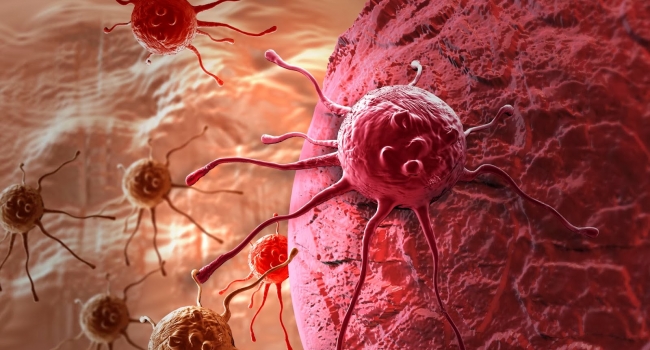- Latest news▼
-
18:00, April 18 Daily Mail: Elderly woman in China gets infected with brain-eating amoeba

-
14:19, April 18 Obesity: exercising before breakfast helps you lose weight faster

-
10:42, April 18 The Conversation: childhood trauma can cause pathological hoarding

-
08:37, April 18 Daily Mail: Satiating food reduces cravings for sweets, nutritionist says

-
18:22, April 17 First Armenian-German Conference entitled “Heart Failure Spring School”

-
08:38, April 17 Why do kids usually recover from COVID-19 more easily than adults?

-
14:37, April 16 Daily Mail: intermittent fasting is not suitable for children and women before their periods

-
16:41, April 15 Cell: in carriers of defective BRCA2 gene, sugar consumption increases cancer risk

-
15:04, April 15 305 cases of measles recorded in Armenia so far in 2024

-
14:38, April 15 Food and Environmental Virology: tea contributes to effective coronavirus control

-
12:41, April 15 Daily Mail: vitamin A, B3 and E supplements can be dangerous

-
10:56, April 15 Diabetes Care: evening physical activity is good for the heart

-
08:27, April 15 Women are more susceptible to blood loss and death during bypass surgery than men, researchers say

-
18:42, April 13 WHO: Nigeria pioneers revolutionary meningitis vaccine

-
16:43, April 13 One-third of women experience menstruation-related migraines, most often during premenopause - study

All materials
New compounds can defeat multi-drug resistant cancer cells

Many cancer deaths occur because cancer cells develop resistance to chemotherapy drugs, prompting a field of research bent on overcoming this treatment barrier. An important step forward took place recently when researchers showed a newly discovered class of molecules can kill mouse cancer cells that have become multi-drug resistant.
The team, including members from the University of Navarra in Pamplona, Spain, and Jagiellonian University Medical College in Kraków, Poland, describes their work so far with the new class of drugs - called selenocompounds - in the journal Bioorganic & Medicinal Chemistry Letters.
Lead author Dr. Enrique Domínguez-Alvarez, from both the University of Navarra and Jagiellonian University, says:
"Our research reports a new way to fight multi-drug resistance in cancer. We are realistic and we know that much more research needs to be done, but we are excited about these promising results that open new and unexplored possibilities."
The new study arises from previous work that identified 57 compounds with anti-cancer properties, among which the team believed there were some that might boost the power of chemotherapy drugs.
The study focuses on a common defense mechanism called the "efflux pump" that develops in cancer cells exposed to chemotherapy.
Situated inside cell membranes, efflux pumps are proteins that push toxic compounds like chemotherapy drugs out of the cell. One such protein is called ABCB1.
The team wanted to see if the selenocompounds discovered in previous work could block the ABCB1 efflux pump.
After running various test-tube experiments with multi-drug resistant (MDR) mouse T-lymphoma cells, the researchers showed the compounds blocked the efflux pumps, with some working four times more effectively than others.
They also found the compounds can trigger apoptosis - cell suicide - in cancer cells.
The most active of the selenocompounds they tested killed about 80 percent of the mouse cancer cells.
The researchers conclude that four of the 11 selenocompounds they tested "demonstrated high potency to inhibit cancer MDR efflux pump ABCB1 with simultaneous cytotoxic- and strong pro-apoptotic activities in the mouse T-lymphoma cells."
They acknowledge these results are just the start of the long process of developing a new class of pharmaceutical drugs.
The next step will be to make and screen similar compounds to select the ones with most potential for testing in live animals.
Follow NEWS.am Medicine on Facebook and Twitter
- Video
- Event calendar
- Archive
- Most read
month
week
day
- Pediatrics: Hypoglossal nerve stimulation implant helps with sleep apnea 1361
- Health minister: Simulation educational center will be created, assisted reproductive technology capacity will increase in Armenia 1317
- WHO: Nigeria pioneers revolutionary meningitis vaccine 1169
- One-third of women experience menstruation-related migraines, most often during premenopause - study 1136
- Women are more susceptible to blood loss and death during bypass surgery than men, researchers say 947
- Daily Mail: vitamin A, B3 and E supplements can be dangerous 924
- Food and Environmental Virology: tea contributes to effective coronavirus control 924
- Cell: in carriers of defective BRCA2 gene, sugar consumption increases cancer risk 896
- 305 cases of measles recorded in Armenia so far in 2024 888
- Diabetes Care: evening physical activity is good for the heart 878
- Daily Mail: intermittent fasting is not suitable for children and women before their periods 702
- First Armenian-German Conference entitled “Heart Failure Spring School” 495
- Why do kids usually recover from COVID-19 more easily than adults? 366
- Obesity: exercising before breakfast helps you lose weight faster 349
- The Conversation: childhood trauma can cause pathological hoarding 343
- Find us on Facebook
- Poll





